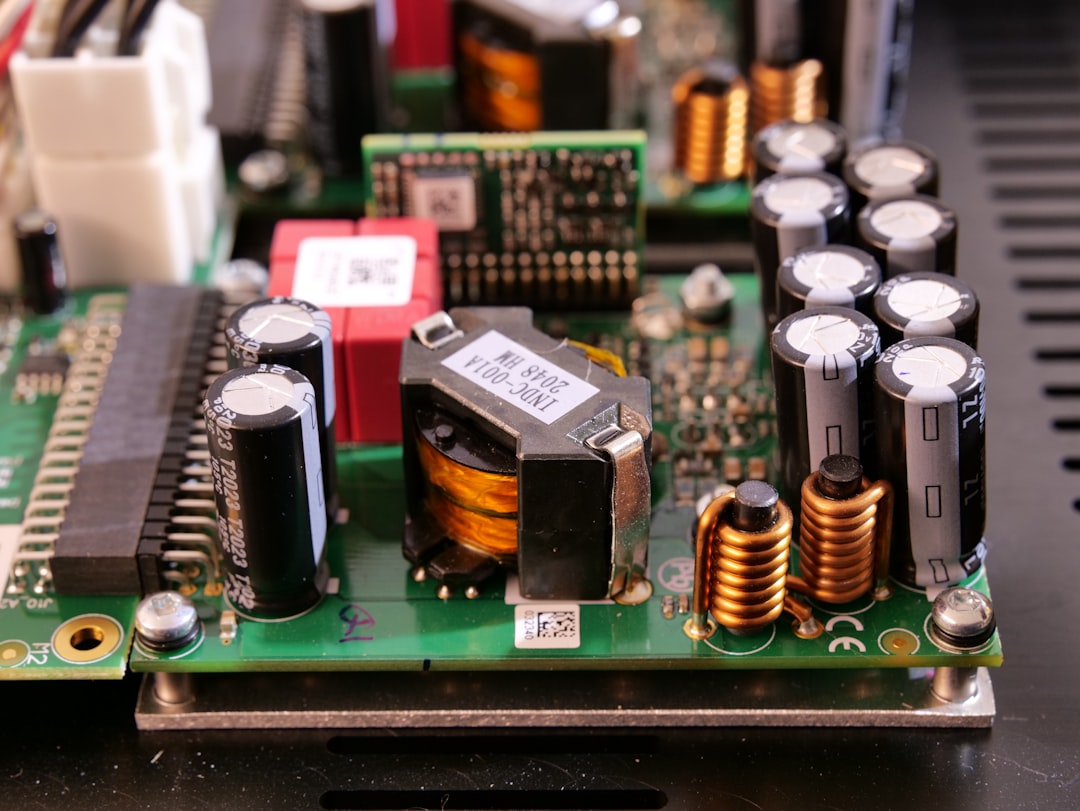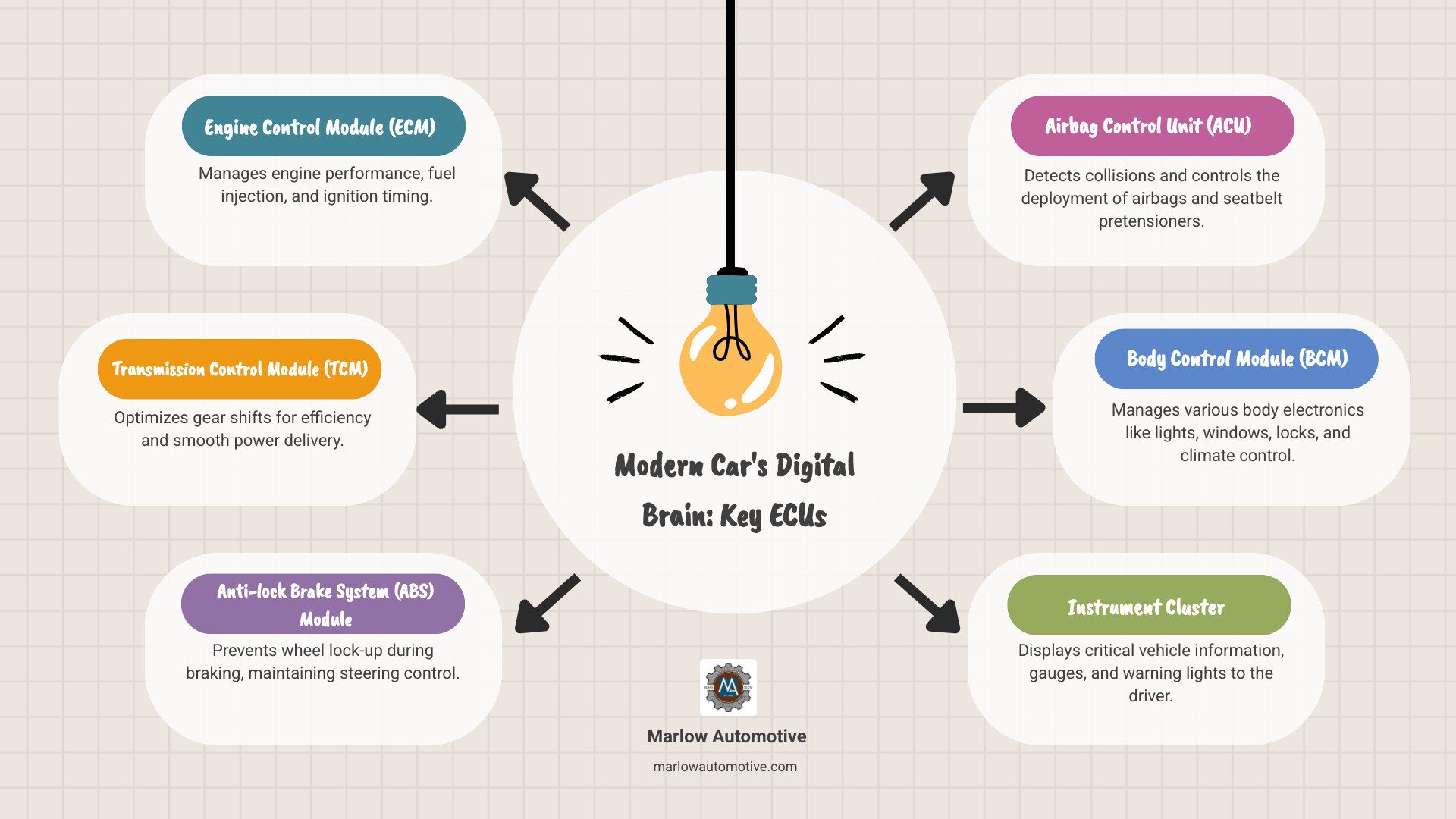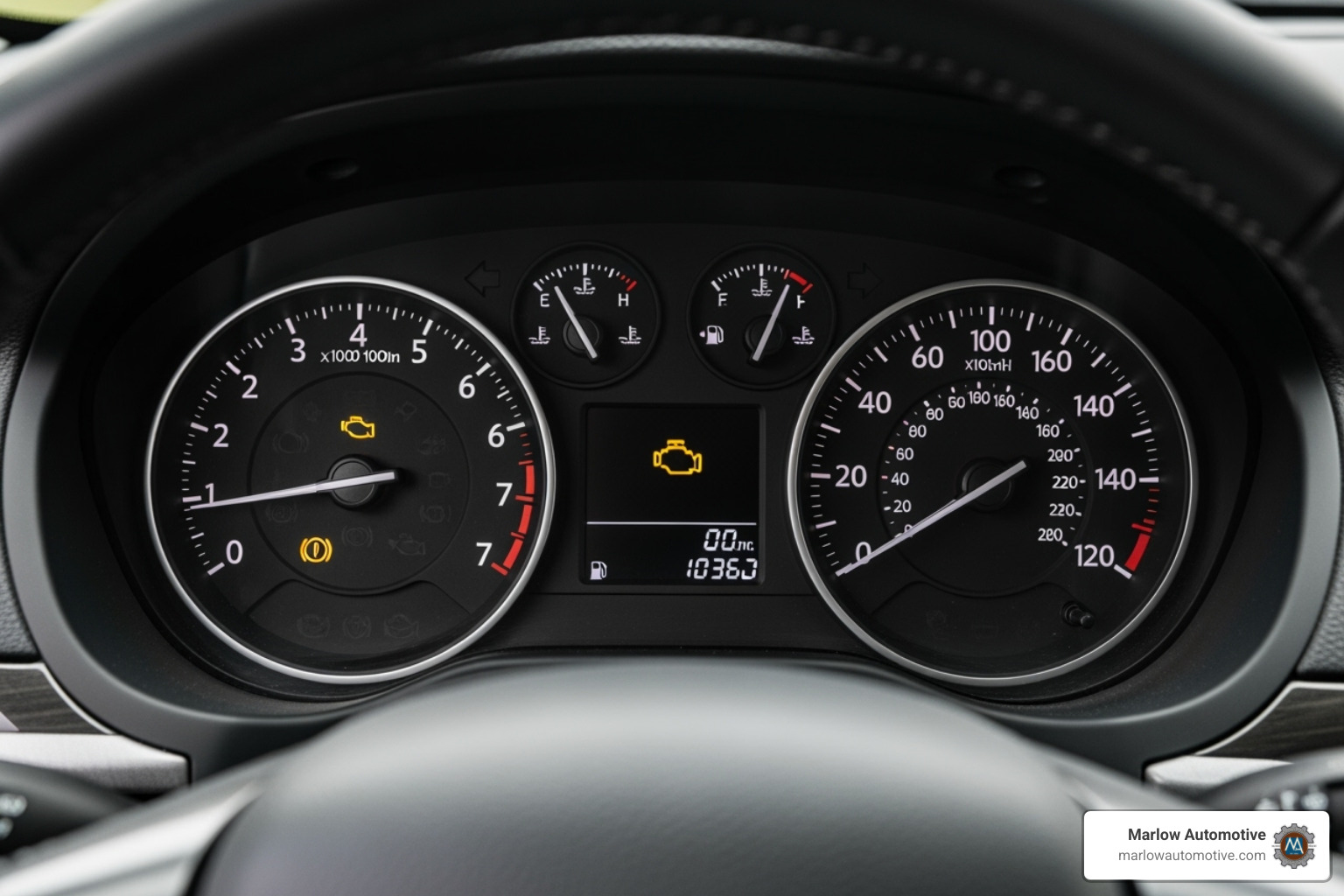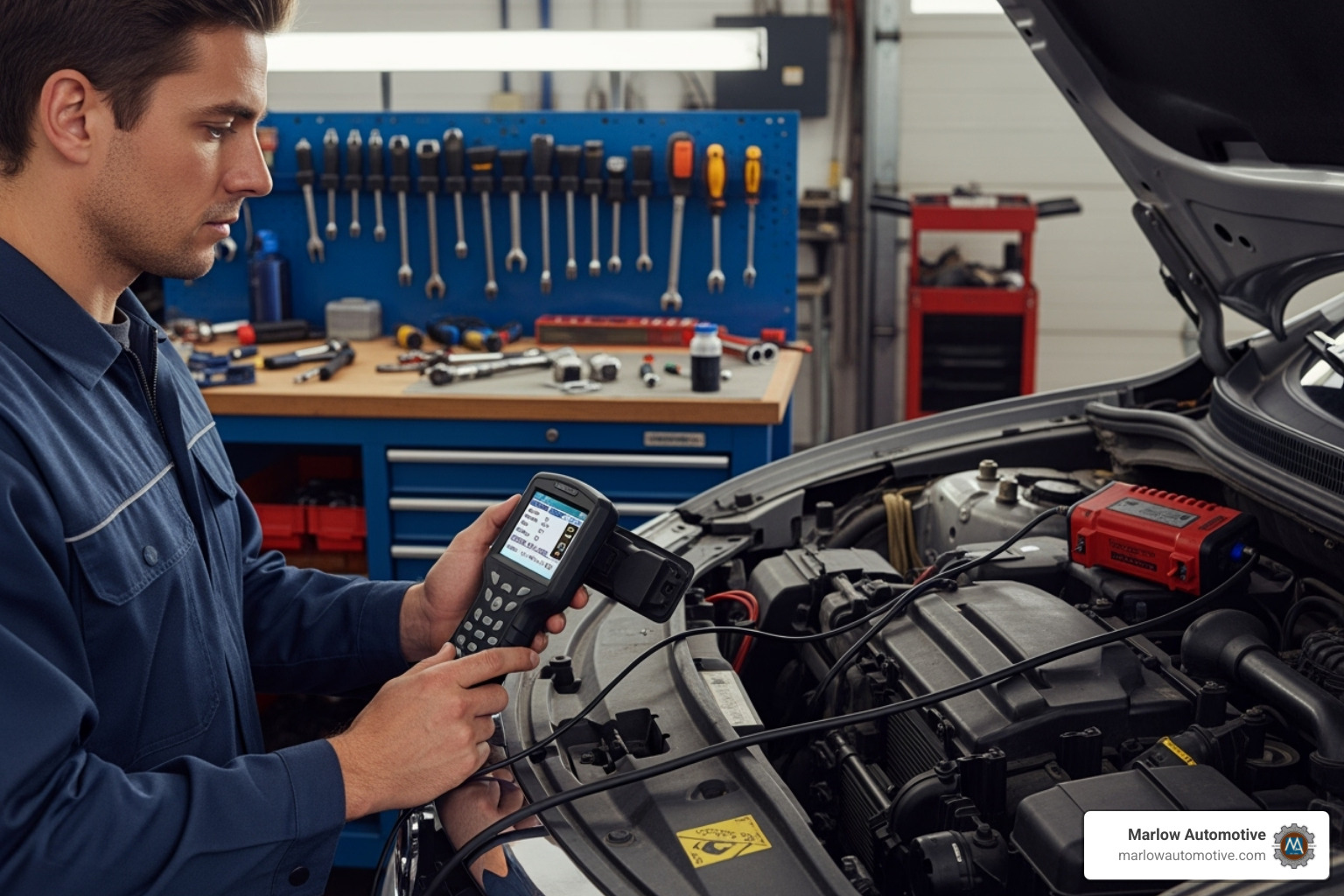From Glitches to Go: Expert Automotive Electronic Repair Services

Why Modern Vehicles Depend on Electronic Systems
Automotive electronic repair has become essential as today's cars rely on sophisticated computer networks to function. Your vehicle contains over 30 electronic control units (ECUs) managing everything from engine performance to safety systems.
Quick Answer for Automotive Electronic Repair:
- What it covers: Engine computers, transmission modules, ABS systems, airbag controls, instrument clusters
- Common signs: Check engine light, starting problems, malfunctioning accessories, poor fuel economy
- Diagnostic process: OBD scan, trouble code analysis, circuit testing, real-time data monitoring
- Repair vs. replace: Repair saves hundreds of dollars and preserves original programming
- Professional tools needed: Advanced scanners, oscilloscopes, manufacturer specifications
Modern vehicles are essentially computers on wheels. As one automotive electronics specialist notes: "Most of your car's features are based on electronics." When these systems fail, you need more than basic mechanical knowledge to fix them.
The complexity means that what looks like an engine problem might actually be a faulty sensor. A transmission that won't shift could have a perfectly good gearbox but a failed control module. Electronic failures can mimic mechanical problems, making proper diagnosis crucial.
Unlike the simple electrical systems of older cars, today's vehicles use networked computers that constantly communicate with each other. When one system fails, it can affect multiple others. This interconnected design improves performance and safety but requires specialized expertise to repair properly.

Spotting the Signs: Common Electronic Failures
Your car's electronic systems are pretty good at telling you when something's wrong—if you know how to listen. Think of these warning signs as your vehicle's way of asking for help before a small problem becomes a big headache.
The tricky part? Electronic failures can be sneaky. What looks like a transmission problem might actually be a faulty computer module. That rough idle could be a bad sensor, not engine trouble. This is why recognizing the early warning signs is so important for your safety and your wallet.

Common Symptoms of Failing Electronic Systems
When automotive electronic repair becomes necessary, your car usually gives you plenty of warning. We've helped thousands of drivers in Plano decode these electronic distress signals over the years.
The check engine light is your car's most direct way of saying "please help me." While it might just be a loose gas cap, it often points to real electronic issues within your engine's computer system. Don't play the "maybe it'll go away" game—we've seen too many small problems turn into expensive ones. Our check engine light service can quickly tell you what's really going on.
Starting problems and stalling are classic signs that your car's electronic systems need attention. If your engine cranks but won't start, needs frequent jump-starts, or suddenly stalls while driving, the culprit could be anything from a failing battery to a faulty starter motor or its electronic controls. When you're dealing with starting issues, our starter replacement service can get you back on the road reliably.
Poor fuel economy often sneaks up on you. When your engine's computer isn't getting accurate information from sensors like the oxygen sensor or mass airflow sensor, it starts guessing about the right fuel mixture. Unfortunately, computers aren't great at guessing—they usually err on the side of using more fuel.
Malfunctioning accessories are often the first sign of electrical trouble. Power windows that move like they're swimming through molasses, radios that cut out during your favorite song, or headlights that flicker like a horror movie—these seemingly minor annoyances can signal bigger electrical problems lurking beneath the surface.
Unresponsive controls are never something to ignore. When your steering feels strange, your brakes aren't responding normally, or other critical systems act up, it's a safety issue that needs immediate attention. These problems often trace back to electronic modules that control power steering, anti-lock brakes, or other safety-critical systems.
Key Electronic Components That Often Require Repair
After decades of diagnosing electronic problems, we've learned that certain components are more likely to need repair than others. Understanding these common trouble spots can help you recognize problems early.
The Engine Control Module (ECM) is essentially your car's brain, managing everything from fuel injection to ignition timing. When it starts failing, you'll notice performance issues, poor fuel economy, and that persistent check engine light. The good news? These modules can often be repaired rather than replaced, saving you hundreds of dollars.
Your Transmission Control Module (TCM) ensures smooth shifting and optimal transmission performance. When it fails, you might experience rough shifting, transmission slipping, or even complete failure to engage gears. Complex transmission issues often involve these electronic components, which is why our transmission repair service includes thorough electronic diagnostics.
The Anti-lock Brake System (ABS) module is critical for safe stopping. A failing ABS module can compromise your braking ability and trigger warning lights on your dashboard. Since your safety depends on proper brake function, our ABS repair service treats these issues with the urgency they deserve.
Body Control Modules (BCM) manage your car's comfort and convenience features—power windows, door locks, interior lighting, and security systems. When the BCM acts up, you might find yourself dealing with multiple seemingly unrelated problems all at once.
The instrument cluster keeps you informed about speed, fuel level, engine temperature, and warning conditions. When displays start flickering, gauges read incorrectly, or the cluster goes completely dark, you lose vital information about your vehicle's condition.
Airbag modules handle one of your car's most important safety systems. If your airbag light stays on, it means the system has detected a problem that could prevent proper deployment in an accident. This isn't something to put off—your safety depends on a properly functioning airbag system.
These electronic components work together like an orchestra. When one instrument is out of tune, it affects the whole performance. That's why proper diagnosis is so crucial for effective automotive electronic repair.
The Diagnostic Deep Dive: How Experts Pinpoint Electronic Faults
When your car starts acting up with mysterious electronic issues, finding the exact problem can feel like looking for a needle in a haystack. That's where our expertise really makes a difference. Automotive electronic repair isn't just about swapping parts – it's about using the right tools and knowledge to solve complex puzzles.
Modern cars don't make diagnosing problems easy. Unlike the old days when you could spot most issues just by looking under the hood, today's vehicles hide their secrets inside computer networks and electronic modules.

The Modern Diagnostic Process
Think of diagnosing electronic problems like being a detective. We gather clues, follow leads, and piece together the evidence until we find the culprit.
We start by listening to you. Your description of when the problem happens and what it feels like gives us valuable clues. Does it happen when it's cold? Only on long drives? These details help us narrow down where to look first.
Next comes our thorough visual inspection. Before plugging in any fancy tools, we check for obvious problems like loose wires, corroded connections, or blown fuses. Sometimes the simplest solutions are hiding in plain sight.
Then we connect to your car's On-Board Diagnostics (OBD) system. This is like having a conversation with your car's computer. The OBD system constantly monitors sensors throughout your vehicle and stores trouble codes when something goes wrong. These Diagnostic Trouble Codes (DTCs) give us a starting point, though they don't always tell the whole story.
Here's where experience matters. A code might say a sensor failed, but the real problem could be damaged wiring leading to that sensor. We analyze these codes alongside our years of experience to understand what's really happening.
Real-time data analysis is where things get interesting. Modern scan tools let us watch your car's systems work in real-time. We can see voltage readings, sensor outputs, and how different components communicate with each other. This helps us catch intermittent problems that might not trigger a trouble code.
For tricky issues, we dive into circuit testing. Using multimeters, we check for correct voltage, resistance, and continuity in specific circuits. We also perform voltage drop testing to find high-resistance problems that could cause mysterious failures.
Most basic diagnostics take about 1 to 1.5 hours. Complex issues that need deeper investigation might take 2 to 3 hours. We'd rather take the time to get it right than guess and waste your money. Our comprehensive computer system diagnostics service gets to the bottom of any electronic issue.
Specialized Tools and Expertise for Automotive Electronic Repair
Diagnosing modern car electronics requires more than basic tools. It takes specialized equipment and the knowledge to use it properly.
Our advanced scan tools go way beyond simple code readers. They're updated with the latest manufacturer software, letting us not only read trouble codes but also monitor live data, test components, and even reprogram modules when needed.
Multimeters are essential for measuring voltage, current, and resistance with precision. They help us trace electrical paths and find shorts, open circuits, or connections with too much resistance.
Oscilloscopes are like having X-ray vision for electrical signals. They show us the actual waveforms from sensors and communication lines, revealing problems that digital readings might miss. This is especially helpful for catching intermittent issues.
We rely heavily on wiring diagrams and manufacturer specifications. Modern cars come with extensive technical documentation, and our technicians know how to read these complex diagrams to understand how circuits should work.
For repairs that go beyond simple replacement, we use soldering stations and specialized circuit board repair tools. Sometimes we can fix a damaged control module by repairing individual components on the circuit board, saving you hundreds of dollars.
But tools are only as good as the people using them. Our licensed technicians bring over 30 years of automotive electronics experience to every job. The automotive world changes fast, especially with electronics, so our team stays current with continuous training on the latest technologies and repair methods.
This combination of advanced tools and deep expertise is what sets professional automotive electronic repair apart from guesswork. When your car's electronics act up, you want someone who knows exactly how to find and fix the real problem.
The Smart Solution: The Case for Professional Automotive Electronic Repair
When your car's electronic module fails, you're faced with a choice: buy a brand new part or have the existing one professionally repaired. While replacement might seem like the obvious path, automotive electronic repair offers compelling advantages that smart car owners are finding.
The Financial and Functional Benefits of Repairing
The numbers don't lie—repairing your electronic module instead of replacing it can save you hundreds of dollars. A new ECM or ABS module from the dealership often costs several times more than a professional repair, and that's before you factor in programming costs.
Cost savings represent just the beginning of repair benefits. When you repair your original module, you avoid the complex reprogramming process that new parts require. Your existing module already "speaks" your car's language perfectly, eliminating costly and time-consuming coding procedures that can add hours to your repair bill.
Faster turnaround times mean less time without your vehicle. While waiting for a new part to be ordered and shipped can take days or weeks, many repairs can be completed much quicker. Some of our repair orders even achieve a 1-day turnaround, getting you back on the road sooner.
Preserving original parts ensures perfect compatibility. Your car came with that specific module for a reason—it's designed to integrate seamlessly with your vehicle's systems. While aftermarket replacements exist, nothing beats the reliability of your professionally repaired original component.
| Feature | Repair | Replacement |
|---|---|---|
| Cost | Hundreds less expensive | Full retail price plus programming |
| Programming | Retains original settings | Requires complex reprogramming |
| Turnaround | Often 1-day service available | Wait for shipping and installation |
| Compatibility | Perfect original fit | May require aftermarket adaptation |
| Warranty | Professional repair warranty | New part warranty only |
The Role of Remanufacturing in Automotive Electronic Repair
Professional automotive electronic repair goes far beyond simple fixes. The remanufacturing process involves completely rebuilding your module to like-new specifications, often upgrading software and addressing known design weaknesses.
Rebuilding process starts with thorough testing to identify all issues, not just the obvious failure. Technicians replace worn components, upgrade circuit boards where beneficial, and ensure every connection meets original specifications. This comprehensive approach often results in a module that's more reliable than when it was new.
Extending component life through remanufacturing means your repaired module may actually outlast a replacement part. By addressing underlying design issues and using improved components, the remanufacturing process creates a more robust unit.
Environmental benefits make repair the responsible choice. According to research on global warming reduction, repairing and remanufacturing automotive components significantly reduces waste and energy consumption compared to manufacturing new parts. Every repaired module keeps electronic waste out of landfills while conserving the energy required to produce new components.
Waste reduction and energy conservation aren't just buzzwords—they're measurable benefits of choosing repair over replacement. The automotive industry generates massive amounts of electronic waste, and professional repair services help reduce this environmental impact while saving you money.
Customer Testimonials
Service Areas








